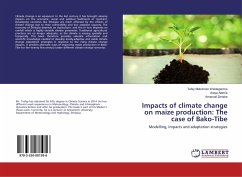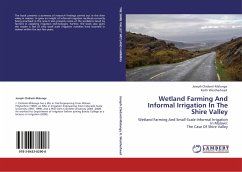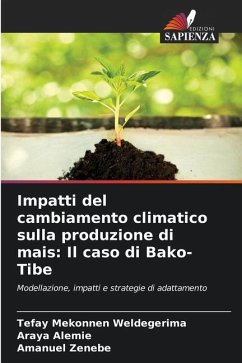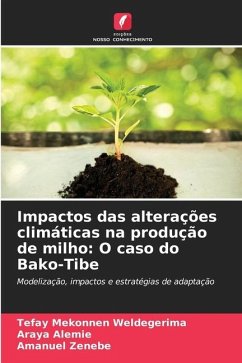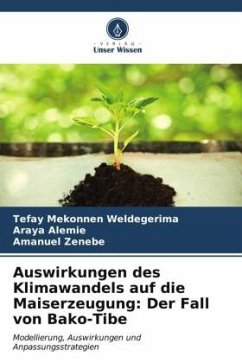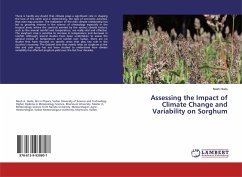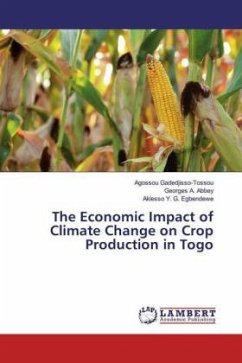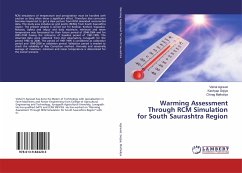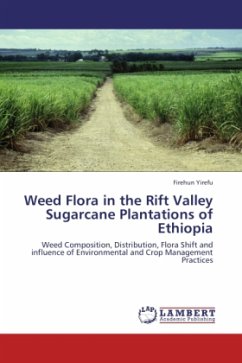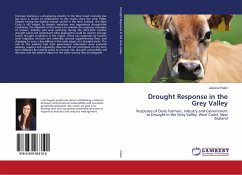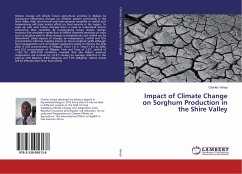
Impact of Climate Change on Sorghum Production in the Shire Valley
Versandkostenfrei!
Versandfertig in 6-10 Tagen
37,99 €
inkl. MwSt.

PAYBACK Punkte
19 °P sammeln!
Climate change will dictate future agricultural activities in Malawi by subsequent influencing changes on weather pattern particularly in the Shire Valley. High intra-annual and inter-seasonal variability in rainfall and temperatures will have serious effect on food security in the region. To cope up with such future changes there is need to understand factors influencing their variability. By incorporating future climate change scenarios into simulation model such as APSIM, potential sensitivity of crops such as sorghum yield to likely changes in temperatures and rainfall can be determined. L...
Climate change will dictate future agricultural activities in Malawi by subsequent influencing changes on weather pattern particularly in the Shire Valley. High intra-annual and inter-seasonal variability in rainfall and temperatures will have serious effect on food security in the region. To cope up with such future changes there is need to understand factors influencing their variability. By incorporating future climate change scenarios into simulation model such as APSIM, potential sensitivity of crops such as sorghum yield to likely changes in temperatures and rainfall can be determined. Likely impacts of changes on temperature, rainfall and CO2 concentration will have negative impact on future sorghum yields although farm managements such as fertilizers application seems to improve the final yield. A CO2 concentration of 570ppm, Tmin+1.8 C, Tmax+1.6°C by 2030, and CO2 concentration of 700ppm, Tmin and Tmax of 3.0°C, rainfall of -16% for 2070-2100 conditions revealed that theValley's seasonal temperature will increase by 1.6-3°C causing an average reduction in the yield by 13% (0kg/ha), 8.8% (25kg/ha) and 7.6% (50kg/ha). Hybrid variety will be affected more than local variety.



